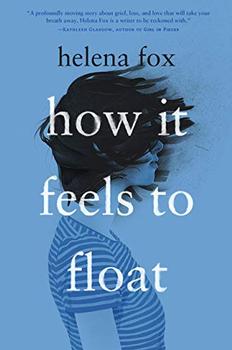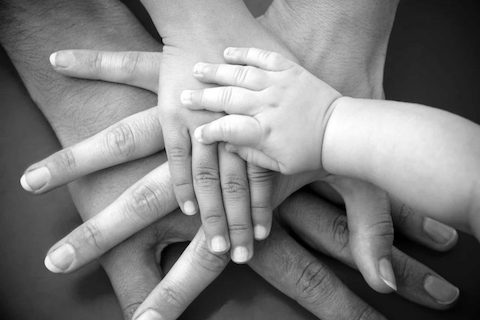Summary | Excerpt | Reviews | Beyond the Book | Read-Alikes | Genres & Themes | Author Bio

This article relates to How It Feels to Float
 As the narrative of How It Feels to Float unfolds, it becomes apparent that Biz's father suffered from some mental health problems and that there is a connection between how he and Biz process the world. The hereditary effects of trauma are only just becoming understood but, in essence, intergenerational trauma describes the transfer of the traumatic experience from those who experienced it first hand to a second, or even further generations, of offspring by way of complex post-traumatic stress disorder mechanisms.
As the narrative of How It Feels to Float unfolds, it becomes apparent that Biz's father suffered from some mental health problems and that there is a connection between how he and Biz process the world. The hereditary effects of trauma are only just becoming understood but, in essence, intergenerational trauma describes the transfer of the traumatic experience from those who experienced it first hand to a second, or even further generations, of offspring by way of complex post-traumatic stress disorder mechanisms.
Though the idea is still being debated in scientific circles, there is a theory that the children of people who have faced traumas have an even greater chance of having stress disorders than the parents who suffered the traumas directly, due to epigenetic inheritance (according to The British Society for Cell Biology, "while traditional genetics describes the way the DNA sequences in our genes are passed from one generation to the next, epigenetics describes passing on the way the genes are used."). This was demonstrated in a genetic study by a team at the New York Mount Sinai hospital, led by Rachel Yehuda, the Director of the Traumatic Stress Studies Division at the Mount Sinai School of Medicine. The study looked at the children of 32 Jewish men and women who survived the Holocaust who have been documented as having higher occurrences of stress disorders than their parents' generation. Their results were compared to those of Jewish families who lived outside of Europe during WWII, and there was a notable change in the genes of the children which researchers attributed to the parents' experiences. However, in the years since, this research has become controversial, with various other studies finding more tenuous connections, for example, research into the life span of the children of American Civil War prisoners compared to others of the same generation whose fathers had not been POWs.
The biological debate aside, psychologists recognize that intergenerational trauma can leave emotional and psychological effects within societies as a whole, where the effects of the trauma are passed along not only through a handful of direct generations, but further and broader, so that negative symptoms from a distant trauma can be felt far into the future. This can also be referred to as transgenerational or historical trauma. Examples include the modern-day effects of the transatlantic slave trade on the descendants of slaves, and the compounding of negative effects on indigenous peoples.
Intergenerational trauma becomes central to better understanding Biz's struggles in How It Feels to Float. Biz knows subconsciously that there is a connection between her and her father, and that there is something tethering them together. She is only able to move forward when she not only learns the truth about her father's past, but about her own experiences with trauma as well. The novel provides neither clear answers nor solutions, but instead, provides another lens on what this experience might be like for someone trapped in the cycle of trauma.
Here's an animated video about intergenerational trauma created by The Healing Foundation:
Filed under Medicine, Science and Tech
![]() This "beyond the book article" relates to How It Feels to Float. It originally ran in May 2019 and has been updated for the
May 2020 paperback edition.
Go to magazine.
This "beyond the book article" relates to How It Feels to Float. It originally ran in May 2019 and has been updated for the
May 2020 paperback edition.
Go to magazine.
Your guide toexceptional books
BookBrowse seeks out and recommends the best in contemporary fiction and nonfiction—books that not only engage and entertain but also deepen our understanding of ourselves and the world around us.